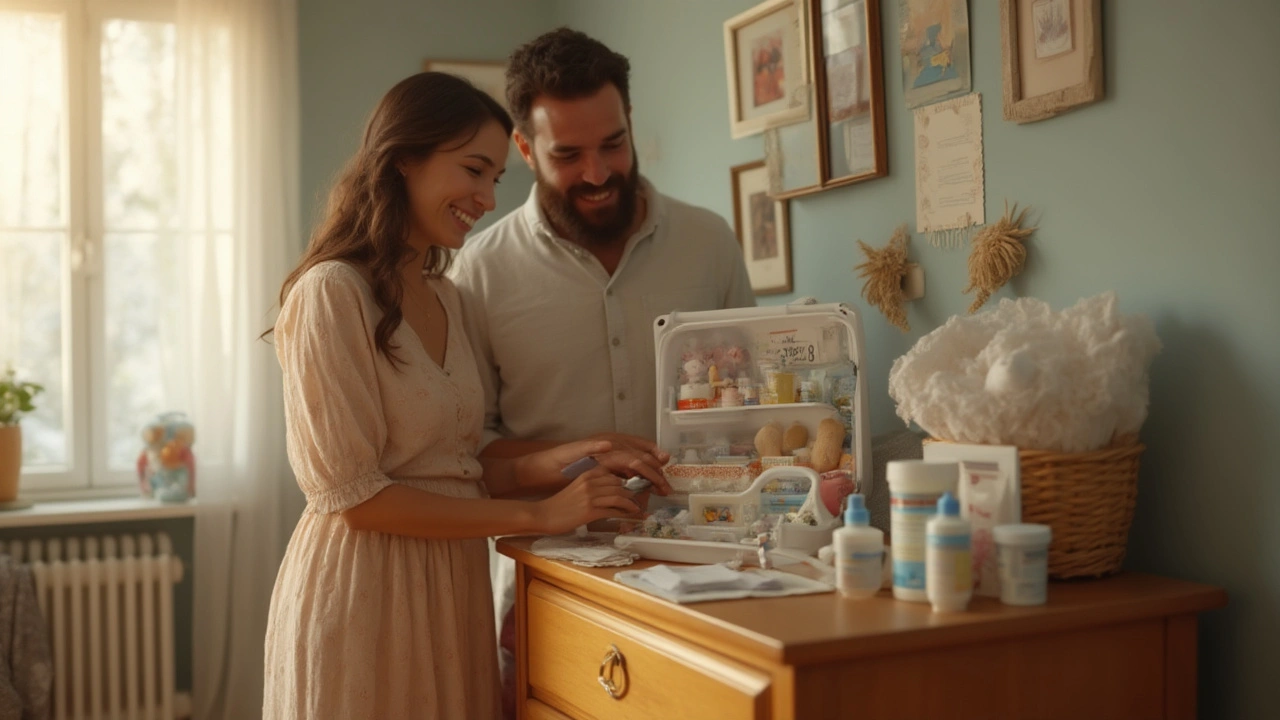Baby Safety: Everyday Tips for Stress-Free Parenting
Worried about keeping your baby safe at home? You’re not alone—every parent has this on their mind. The good news is, a few simple habits make a massive difference. Let’s get real about practical baby safety, with tips you can use right away.
First up: childproofing. Babies turn into little explorers faster than you'd think. Lock up cleaners and medicine. Put safety gates by the stairs and secure furniture that could tip over. Check cords from blinds or electronics—keep them out of reach. Plug socket covers are cheap, but the real win is moving cords, chargers, and other gadgets high and out of reach. Don’t leave any loose change, batteries, or small objects on tables—they’re choking hazards.
Bath time gets risky quickly. Never leave your baby alone in the bath, not even for a second. Set your water heater to below 120°F (49°C) so there’s no risk of sudden burns. Keep all bath essentials—like shampoo and towels—within arm’s reach before you fill the tub. Slippery surfaces? Get a non-slip mat, and dry the floor after.
Feeding safety is huge. Babies put just about everything in their mouths, so always cut food into tiny, manageable pieces. No whole grapes or big chunks—these can block airways fast. Avoid honey before age one because it can carry bacteria dangerous for infants. If your baby starts coughing or looks panicked during a meal, act quickly and check for choking.
When it comes to sleep, keep it simple—a firm mattress, a fitted sheet, and that’s it. Skip pillows, stuffed animals, and loose blankets. Always put your baby to sleep on their back to reduce the risk of SIDS (Sudden Infant Death Syndrome). A room thermometer helps you keep it cool—babies don’t need to be bundled up in piles of heavy blankets.
Out and about, buckle your baby into a properly fitted car seat every single time. Double-check the straps. Car seats need to fit your child’s age, height, and weight. Don’t buy secondhand unless you know it’s never been in an accident. Strollers? Always use the brakes, and never hang heavy bags from the handles—it’s a tipping hazard most people overlook.
Babies grow fast, and yesterday’s safe zone is today’s playground. Regularly walk through your house on your knees to spot hidden dangers from a baby’s point of view. Stay alert to new hazards—like trash cans, dog bowls, or the floor fan when the seasons change.
Baby safety isn’t about perfection; it’s about staying a step ahead, thinking like your little one, and knowing that small changes go a long way. Every time you adapt a space or spot a new risk, you’re building a safer world for your baby to explore. Got questions about specific baby safety products or situations? There’s no shame—ask for tips and swap ideas with other real parents. It’s the small, daily steps that keep your little one safe and let you breathe easier.

Newborn First Aid Kit Essentials: What Every Parent Should Have
Get the inside scoop on must-have newborn first aid kit essentials. Learn what every parent should keep handy—from thermometers to nail clippers—for peace of mind.
Read More